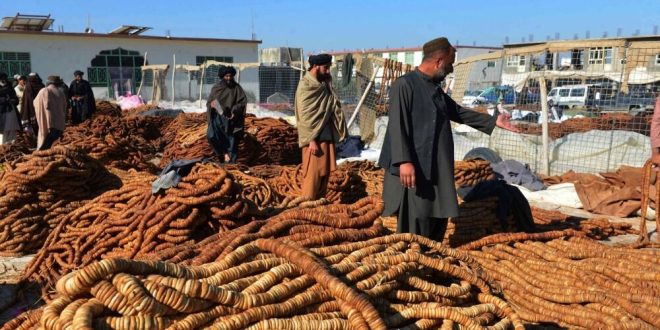KABUL — India has closed the Attari-Wagah land border with Pakistan following the April 22 terror attack in Pahalgam that killed 26 people, a move that is now disrupting imports of dry fruits from Afghanistan and could drive up prices across Indian markets.
The decision comes amid escalating tensions with Pakistan, which has also suspended all trade with India in retaliation. As a result, Afghan exporters and Indian importers are reporting severe disruptions in the movement of dry fruits—almonds, pistachios, raisins, and dried figs—major commodities in the bilateral trade valued at $591.49 million in 2024–25.
“This is Afghanistan’s shortest and cheapest trade corridor with India,” the Taliban government’s foreign ministry said in a statement, calling Attari “the only operational land border crossing” for their goods. The Afghanistan Chamber of Commerce and Investment (ACCI) estimates that annual trade through this route is worth $500 million.
With the Attari route blocked, traders are looking at the Chabahar Port in Iran as an alternative, but warn of delays and increased costs. “It could take at least two months for fresh stocks to reach Indian markets,” said BK Bajaj, an Indian importer. “The Iran route will cost more and delay deliveries. Prices will go up.”
Domestic traders are already anticipating price hikes of up to 20%, with retailers bracing for reduced supplies just ahead of peak demand seasons.
India exported goods worth $264.15 million to Afghanistan during 2024–25 (April–January), while the bulk of imports—$358 million—comprised Afghan dry fruits.
 Afghanistan Times
Afghanistan Times




